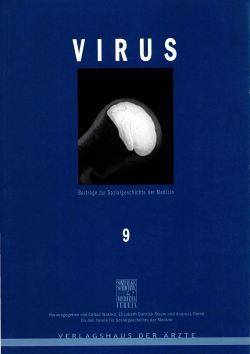
VIRUS Band 9, pp. 011-024, 2020/08/04

An interdisciplinary discourse about the effects of demographic ageing started in lateImperial Germany. It reached its climax in the Weimar Republic and the “Third Reich”,continued – however with some semantic changes – after World War II and still goes onto this day. Because of the declining birth rates the German “national body” (“Volkskörper”)was in a disastrous condition, as various experts asserted since 1911. Especiallydemographers railed against the phenomenon of demographic transition that was hithertounknown to them. They were worried about “national health” (“Volksgesundheit”),since this phenomenon was considered to be a special kind of a “national disease”(“Volkskrankheit”) that might end up in “national death” (“Volkstod”) sooner or later.Thus gerontophobic attitudes more and more became a commonplace in demographicresearch and population policy as well. The paper examines how different protagonistswithin the demographic discourse developed and publicized their paradigms of pathologizingon the one hand and strategies of medicalization on the other hand in order toexplain and to fight the increasing ageing of the German people throughout the wholetwentieth century.
Keywords: Germany, 20th century, ageing, demographic transition, population policy, Volksgesundheit, Volkskörper